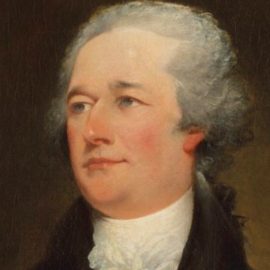

This article is an excerpt from the Shortform book guide to "The Prince" by Niccolò Machiavelli. Shortform has the world's best summaries and analyses of books you should be reading.
Like this article? Sign up for a free trial here .
Should a ruler be optimistic or realistic? What should he prioritize—the support of the populace or the support of his peers?
When it comes to the qualities of a prince, Machiavelli advises pragmatism. However, he still believes that princes should have and work towards certain guiding principles.
Keep reading to learn these five principles.
Qualities of a Prince
For Machiavelli, whether a prince is a good and just ruler or a cruel and tyrannical one matters only inasmuch as it helps or hurts their ability to keep power. The princes he venerates were driven to brutality or deception by the need to bring about the happiness of the people, the long-term stability of the state, or the greatness of the people as perceived by other states. They weren’t motivated solely by greed or selfishness.
| Pragmatism and Realpolitik Throughout history, critics of Machiavelli have called him a teacher of evil, instructing princes to behave in fundamentally self-interested and amoral ways. He’s even been compared to the devil himself. However, while Machiavelli rejected traditional morality, he didn’t believe that princes should be amoral or that it was a prince’s job to advance themselves at the expense of the people. Machiavelli’s philosophy is that of extreme pragmatism—that anything and everything is justified if it serves the state. As Machiavelli sees it, everything a prince does should be to the benefit of their people, and that can include brutal punishments or deprivation of basic human rights. If it makes the government more stable and the area safer, then it’s for the good of the people as a collective, even if it hurts individuals. A version of Machiavelli’s philosophy survives in politics today, in the form of realpolitik: the idea that politicians should be motivated by the security and survival of their state, not by abstract political philosophies or ethics. Critics of realpolitik argue that it reduces politics to power-grabbing, with politicians being motivated solely by ambition and greed. However, realpolitik’s defenders say it defines politics in realistic terms, encouraging politicians to focus on the consequences of their actions and concrete events rather than vague ideals. |
Here are the five qualities that a prince needs, according to Machiavelli.
#1: Machiavellian Virtue
For Machiavelli, what makes a prince great is their virtú, which he defines as their ability to take decisive action and to stand as an individual.
Machiavelli’s ideal prince is unafraid to affect radical change or to begin military offensives, takes advice without being steered by others, always thinks ahead to anticipate threats, and prioritizes the survival of the principality. To appear ‘virtuous,’ as Machiavelli defines it, a prince shouldn’t aim to appear morally good, but to appear as someone whose continued success can be relied upon.
#2: Being a Realist
Machiavelli argues that too many politicians and political theorists approach questions of rule with idealism rather than a realistic sense of the problems they face. Princes should strive to rule effectively rather than to create a utopian government. According to Machiavelli, the prince who tries to act morally good at all times will inevitably be overthrown because they won’t meet the threats they face with the appropriate brutality.
Instead, princes should act according to necessity and circumstance and be prepared to do the wrong thing if it means preserving the principality. Machiavelli argues that losing the state because they’re unable to be brutal is crueler than keeping the state alive through brutality.
| Moral Relativism: Do the Ends Justify the Means? Essentially, Machiavelli is making an argument in favor of moral relativism, or the belief that right and wrong are not universal truths but are highly specific to time, place, and culture. Moral relativism is not the same as complete amorality, and Machiavelli does believe in right and wrong, condemning behavior he sees as pointlessly brutal. But he does support brutality with a purpose. Machiavelli is often misquoted as having summarized his philosophy as: “The ends justify the means.” Though Machiavelli never says those words exactly, he does write that “in the actions of all men, and especially of princes…one judges by the result.” His emphasis on “princes” in this context indicates he believes that what a prince does may be judged as wrong by the average person, but a prince is not the average person: Their actions don’t just speak for themselves, but for many others as well. Because a prince has greater responsibilities, they can, in Machiavelli’s view, better justify bad behavior. By how much is a question he leaves open. |
#3: The Value of Deceit
Interestingly, while Machiavelli argues that princes shouldn’t be concerned with behaving morally, he says they should be very concerned with appearing moral. Princes should strive to have a reputation of being just, loyal, kind, generous, and religious.
While Machiavelli argues that princes should always be prepared to do the wrong thing, he also acknowledges that people want to believe that their leaders are fundamentally good. A prince who is obviously cruel or dishonest or who makes promises with no intention of keeping them, will eventually lose the love of their people and the trust of their allies.
Machiavelli particularly emphasizes the need for a leader to appear religious, even if they don’t truly subscribe to religious principles. In Renaissance Italy, Christian faith was often synonymous with goodness, so a prince outright rejecting its teachings would be ostracized by every other power in the area.
(Shortform note: Though he does not say so outright, Machiavelli is warning readers that too much focus on religion could open them up to manipulation by the Church and the Papal States. As God’s representative on Earth, the Pope could argue that any truly Christian state should answer to him, while Machiavelli believed that princes should rule their principality according to the needs of their people.)
#4: Balancing People and Peers
Examining princes who have fallen from power, Machiavelli observes that a prince needs to strike a delicate balance between keeping the love and support of the people they rule, and keeping the love and support of those who aid them in ruling, be they nobility, a council of advisors, potential successors, military leaders, and so on.
Because these two groups tend to occupy different social classes and have different relationships to power (accepting that they will be ruled versus wanting to rule), their desires and priorities differ, so failing to satisfy either one can leave a prince vulnerable to being overthrown.
That said, Machiavelli argues that the support of the people is always more valuable and should take priority over the support of the nobility, other government officials, or the army.
This is partly due to their sheer numbers, which makes the people a more effective power base and harder to stand against; after all, it’s easier to remove a few noblemen from power than to crush a national movement. Machiavelli also argues that appeasing the people requires you to do less to curb your own power, since, rather than aspiring to gain power for themselves, most of them just wish to live safe, prosperous, and comfortable lives.
| The Possibility of Democratic Revolution Curiously, Machiavelli doesn’t discuss the possibility that the people may want power or the ability to govern for themselves. On one hand, democracies in Machiavelli’s day looked very different than they do now, and he may simply not have regarded ordinary people as political actors. On the other hand, classical Greece provided numerous examples of self-rule by the people, and Machiavelli used ancient history as the basis for many of his lessons. His admiration for republics was based on these ancient models of democracy. There’s also the fact that Machiavelli observes early on in the book that society is a constant struggle between nobles, or the rich and powerful, and ordinary people: “The people do not wish to be ruled nor oppressed by the nobles,” while “the nobles wish to rule and oppress the people.” This philosophy is echoed by later democratic thinkers, including the French Enlightenment writer Jean-Jacques Rousseau, who described government as a kind of compromise made between the people and their rulers over who has the power, and even by Karl Marx, who conceptualized all of history as a struggle between the haves and the have-nots. Rousseau was an admirer of Machiavelli, believing him to be a republican icon and The Prince a brilliant satire. Indeed, while Machiavelli predated the Age of Revolutions by around 250 years, his writings had a great impact on the fundamental beliefs underlying it—that politics had little to do with religion, that princes ruled through a combination of manipulation and cruelty, and that a government could not survive without the support of the people. Even if Machiavelli didn’t consider the possibility of a democratic revolution, his readers certainly did. |
In contrast, meeting the needs of a prince’s peers means keeping them loyal despite their aspirations for power. Machiavelli argues that a prince should allow the nobility, government, and army to compete amongst themselves for influence and wealth but should violently crush any move made against the prince. In turn, he advises princes to honor and reward those who remain loyal and to be extremely wary of anyone whose loyalty is uncertain, no matter how little power they might appear to have.
Machiavelli also suggests that keeping the love and support of the people can discourage conspiracy or assassination attempts originating from your peers. No matter how unhappy the members of a prince’s inner circle are, if they suspect that the people would refuse to accept their government after the overthrow of a beloved prince, they will continue to support the prince.
| Populism Machiavelli’s advice about prioritizing the love of the people resembles modern-day populism, or an approach to politics that emphasizes the needs and interests of ordinary people over those of so-called elites. Populist movements argue that ordinary people are oppressed, exploited, or otherwise harmed by the rich and powerful, and want to bring this unbalanced relationship to an end. The question of how varies widely across right-wing and left-wing populist movements, as does the conception of who counts as ‘ordinary people’ versus ‘elites.’ Examples of populist leaders and movements from the 21st century include Occupy Wall Street, the Tea Party movement, Evo Morales, Hugo Chavez, Brexit, and Donald Trump. As Machiavelli suggested, many of these leaders were able to achieve great success in politics despite being complete outsiders to the establishment or even openly disliked by their peers. The support of the people, in the form of votes or even physical force, gave them the tools to enact change. To keep power long-term, however, these leaders would eventually need to either win over their peers or replace them with loyal supporters. |
#5: Being Feared, Rather Than Loved
Machiavelli’s adage that it’s better to be feared by people than loved by them is one of The Prince’s most infamous lessons. His justification for this idea is simple: Obedience due to love and affection is unreliable, while obedience due to fear is not. People are inherently disloyal, and no matter how much love they have for a prince, they may betray him if they believe it’s in their best interest, or even in the best interest of the state.

———End of Preview———
Like what you just read? Read the rest of the world's best book summary and analysis of Niccolò Machiavelli's "The Prince" at Shortform .
Here's what you'll find in our full The Prince summary :
- Niccolò Machiavelli's description of how authoritarian leaders should rule
- An unapologetic depiction of the “real truth” of politics
- Analyses of how Machiavelli's lessons survive in modern-day politics






